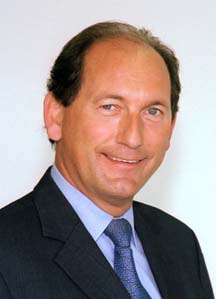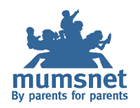Campaign blog
Nestle tries to co-opt the good reputation of others
15 February, 2011 - 10:11 — WebmasterNestlé opened nominations for its Creating Shared Value prize this February 2011. The company could improve its public image by accepting Baby Milk Action's four-point plan for saving infant lives and ultimately ending the boycott - but instead it is opening its cheque book to try to buy itself some good publicity by co-opting the good reputation of others. However, there is a risk that anyone supporting Nestlé's Creating Shared Value award will find they are dragged down by association with one of the world's four most boycotted companies. And as news breaks in the UK about companies infiltrating environmental groups, we should remember that Nestlé is being pursued through the courts in Switzerland after spying on campaigners there.
- Webmaster's blog
- Login to post comments
- Read more
Members can now register to start our online monitoring course
3 February, 2011 - 10:24 — WebmasterOne of the activities in our Make a Mark in 2010 initiative was to develop an online training course on monitoring the baby food industry.
The technology has been put in place and the first module has now been made live on our website. Further modules in the 8-module course will be added over the coming months.
- Webmaster's blog
- Login to post comments
- Read more
The unprincipled men who wish to dictate how the world is run
26 January, 2011 - 15:46 — Webmaster Mr. Paul Bulcke (left), CEO of Nestlé SA, and his predecessor and current Nestlé Chairman, Peter Brabeck-Letmathé, are seeking to set the agenda at the World Economic Forum in Davos, Swizerland this week. Nestlé is 'widely boycotted' in the words of its Global Public Affairs Manager, due to its aggressive marketing of baby foods in breach of international standards. Given the documentary evidence of systematic violations of the marketing requirements and the strategies employed by Mr. Bulcke and Mr Brabeck as they put their own profits before the lives and well-being of babies and their families, Baby Milk Action says it is ironic that Mr. Bulcke, co-chair of the meeting, believes he has any credibility in calling for "new global principles to fuel development". Mr. Bulcke, who was appointed CEO after achieving high growth in the baby food sector in Latin America, states in a press release on the Nestlé site: "When run in a principled way, with strong values and a long-term perspective, business can be an engine for development and prosperity."
Mr. Paul Bulcke (left), CEO of Nestlé SA, and his predecessor and current Nestlé Chairman, Peter Brabeck-Letmathé, are seeking to set the agenda at the World Economic Forum in Davos, Swizerland this week. Nestlé is 'widely boycotted' in the words of its Global Public Affairs Manager, due to its aggressive marketing of baby foods in breach of international standards. Given the documentary evidence of systematic violations of the marketing requirements and the strategies employed by Mr. Bulcke and Mr Brabeck as they put their own profits before the lives and well-being of babies and their families, Baby Milk Action says it is ironic that Mr. Bulcke, co-chair of the meeting, believes he has any credibility in calling for "new global principles to fuel development". Mr. Bulcke, who was appointed CEO after achieving high growth in the baby food sector in Latin America, states in a press release on the Nestlé site: "When run in a principled way, with strong values and a long-term perspective, business can be an engine for development and prosperity."
Mr. Brabeck has for decades advocated that corporations be trusted to follow voluntary principles and be given greater power in policy setting than civil society organisations as the "engineers of wealth". At the last Nestlé shareholder AGM in April 2010 Mr. Brabeck warned against tying corporations up in a “regulatory straightjacket”, saying this was unnecessary as people should trust Nestlé's values. Mr. Brabeck's stance is inconsistent, however, because while opposing strong regulations protecting babies and their families in line with international marketing standards in favour of voluntary measures, he has argued that protection of company brands should be "entrenched in the law and strictly enforced by the authorities". Mr. Brabeck also argues publicly that corporations should be trusted as global citizens, but told business leaders in Boston in 2005, that corporations should not feel obligated to 'give back' to the community and should only support good causes if it will benefit shareholders.
Mike Brady, Campaigns and Networking Coordinator at Baby Milk Action, said, "Mr. Bulcke and Mr. Brabeck have demonstrated the only principle they seem to understand is money - that is why we call on people around the world to join the boycott until they agree to stop pushing baby foods in ways that undermine breastfeeding and endanger babies fed on formula. The boycott has forced some changes, but they still have a long way to go. Mr. Bulcke is trying to present himself as a principled business leader on the global stage as part of his strategy to divert attention from what Nestlé's does in reality."
Both Mr. Bulcke and Mr. Brabeck have rejected Baby Milk Action's four-point plan for saving infant lives and ultimately ending the boycott.
- Webmaster's blog
- Login to post comments
- Read more
Mumsnet questions to Mike Brady
20 December, 2010 - 19:05 — WebmasterQ and A with Mike Brady
The Mumsnet parenting website invited their followers to post questions to be answered by Mike Brady, Campaigns and Networking Coordinator at Baby Milk Action, and the moderators selected the following as representative.
Edited versions of these answers have been posted on the Mumsnet site - full answers are given here.
Browse the questions selected by Mumsnet below and click on the links to go straight to Mike Brady's full answer.
- Webmaster's blog
- Login to post comments
- Read more
Is it right to demonise formula? - and other questions answered
20 December, 2010 - 18:51 — WebmasterThe Mumsnet parenting website invited their followers to post questions to be answered by Mike Brady, Campaigns and Networking Coordinator at Baby Milk Action, and the moderators selected the following as representative.
Edited versions of these answers have been posted on the Mumsnet site (there is a word limit on the answers) - full answers are given here with links to supporting information.
- Webmaster's blog
- Login to post comments
- Read more
The UN Global Compact officer moves to Nestle - and so long to Niels
1 November, 2010 - 19:12 — WebmasterA senior member of the World Health Organisation (WHO) responsible for the UN Global Compact has moved to Nestlé as Vice President for Corporate Affairs. The Global Compact is a voluntary initiative aiming to persuade corporations to abide by a set of Principles on human rights and the environment. Baby Milk Action and other Nestlé Critics filed complaints with the UN Global Compact Office in 2009 under so-called Integrity Measures alleging egregious violations of the Global Compact Principles, but the Office refused to investigate these. Despite the complaint about Nestlé's aggressive marketing of baby food in violation of international standards and other on-going concerns, the Global Compact Office accepted Nestlé as a patron sponsor of its 10th anniversary summit in New York in July 2010 (see press release UN Global Compact - 10 years of helping cover up corporate malpractice). Now it has been reported that the WHO officer responsible for promoting industry alliances with the UN Global Compact moved to Nestlé in October 2010 to take up a position as Vice President. While this is a worrying indication of the close relationship between the UN Global Compact staff and industry, Baby Milk Action is calling on Nestlé newest Vice President, Janet Voûte, to use her position to try to stop her new colleagues violating the Global Compact principles.
- Webmaster's blog
- Login to post comments
- Read more
Nestle-free Week 2010 gets off to a Tweeting good start
25 October, 2010 - 10:35 — WebmasterIt is International Nestlé-Free Week from 25 - 31 October 2010 (press release). A week for people who boycott Nestlé over its baby milk pushing to do more to spread the word and for those who don't boycott to give it a go. This year people are being asked to email Nestlé over its last baby milk marketing strategy: it is claiming its formula 'protects' babies despite the fact that babies who are fed breastmilk substitutes are more likely to become sick than breastfed babies and, in conditions of poverty, more likely to die.
Breastfeeding or using formula, International Nestlé-Free Week needs your support
11 October, 2010 - 21:17 — WebmasterIt is International Nestlé-Free Week at the end of October. Our press release can be found at:
http://info.babymilkaction.org/pressrelease/pressrelease10oct10
I saw a comment on one discussion board where someone had posted a link: "sorry .. but some people cant breast feed .. so making people feel guilty because they cant .. no thanks ..."
I posted the following comment:
You must be having a laugh!
30 September, 2010 - 12:16 — WebmasterFunny!
Thanks to VictoriaSlinglady for this.
- Webmaster's blog
- Login to post comments
- Read more
Over 140,000 people call for United Nations to protect, promote and support breastfeeding and appropriate information
22 September, 2010 - 11:04 — WebmasterThe UN Secretary General, Ban KI-moon, is today announcing a worldwide campaign to save the lives of 16 million mothers and children over the next five years and a fund of US$40 billion to help achieve this goal. See The Guardian.
This is wonderful news - and we should perhaps not be too surprised to find that Nestlé, a company with a long record of abusing women and child rights, is trying to muscle in on the initiative to try to distract attention from its on-going aggressive marketing of baby milks in breach of international standards and other much-criticised practices.
Far too many mothers and children die from preventable causes. While we welcome the new United Nations initiative, we should also remember that there are far cheaper, but politically more difficult, steps that can be taken to reduce unnecessary child deaths: implementing and enforcing existing measures adopted by the United Nations. Over 140,000 people have signed a rolling petition calling for policy makers to take action to protect, promote and support breastfeeding, with over 3,000 addressing a specific message to the Secretary General over the last three days. See the ONE MILLION CAMPAIGN.
In the area of infant feeding, the International Code of Marketing of Breastmilk Substitutes is helping to save lives in many countries, but many more have yet to implement it and the subsequent, relevant Resolutions of the World Health Assembly. These international minimum standards aim to protect breastfeeding and ensure breastmilk substitutes are used safely when necessary and companies are called on to abide by them independently of government action, but do not do so.
Worse still, the United Nations Global Compact, a voluntary initiative intended to improve the behaviour of transnational corporations, has been found to be complicit in working with companies such as Nestlé to allow violations of the Code and Resolutions to continue: it accepts Nestlé funding to promote the initiative and posts on its website Nestlé's PR materials claiming the company abides by the Code and Resolution, but refuses to investigate reports of egregious violations of the Global Compact Principles registered under the initiatives Integrity Measures. There are also concerns that corporations will be using the UN Secretary General's new initiative as a way to improve their images, while continuing to abuse human rights.
- Webmaster's blog
- Login to post comments
- Read more







